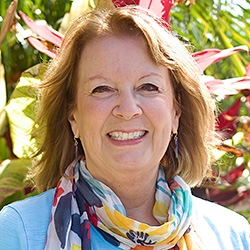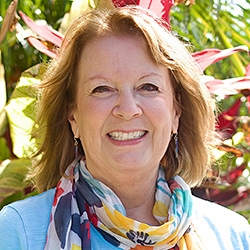

Search Results: self compassion
-
Don’t know how to effectively work through differences with others in your organization? You are not alone… Like most of us, you simply lack the training and skills – and that’s what you’ll acquire listening to this course recording. Join Miki and learn specific tools and tips that work – for everyone!
-
Transforming organizational culture requires attention and change at the systemic level. Learn which systems are crucial for any organization to establish and clarify whether that organization is collaborative or not, and then learn how to create and strengthen a collaborative organization.
-
Inspired by Marshall Rosenberg's teachings, Kathleen Macferran's self-empathy exercise offers a transformative approach for those challenging moments when you fall short of your own expectations.
-
Learn how to move from blame to understanding when needs aren’t met.
-
Trainer Tip: See imperfect NVC moments as learning opportunities, not failures.
-
John Kinyon shares how self-connection and mourning help balance your needs with others’.
-
Ask the Trainer: Finding ease and authenticity when writing to someone with cancer.
-
CNVC Certified Trainer Arnina Kashtan talks about what she calls "witnessing humanity," touching on the gift of presence, empathy vs. identification and staying present in the face of intensity.
-
Join CNVC Certified Trainer Mary Mackenzie to learn a few of her tried-and-true simple Self-Empathy techniques, especially focused on the challenges of the holiday season.
-
In this brief audio segment, John Kinyon offers a guided tour of our inner maps of conflict, including interpersonal mediation, chooser/educator, enemy images and making amends maps.
-
How we deal with “no” is a litmus test of our state of consciousness around power. Listen as John works with participants as they learn to give and receive a "no" from a consciousness of interpersonal connection.
-
Join Jim Manske as he leads you through a self-connection exercise to guide you toward welcoming whatever enters into your awareness.
-
Listen to Robert describe the five core principles of Living Compassion and the relationship of needs to spirituality. Great material for reflection and reference!
-
Jim and Jori Manske offer insight into blame, how it arises and how do we handle being blamed and our own blame of others.
-
When you have intrusive thoughts about yourself and feel ‘crummy,’ Ike recommends using the Chooser / Educator map as a guide to lead you out of the primitive part of your brain and back to your prefrontal cortex. Both the Chooser and the Educator want to contribute to your well being, but in different ways. This map facilitates having a positive conversation with them.
-
Jim Manske offers practices to stay in dialogue without defensiveness, especially when it's difficult. Listen to Jim discuss the refining of our commitment to connection and how to respond to others' defensiveness too.
-
Rodger Sorrow introduces us to "Connection Time," a practice for you and a significant other to deepen, broaden and mend your relationship with each other.
-
Explore self-empathy with an exercise to connect more deeply with your needs.
-
Want to expand your needs vocabulary, and build your capacity to identify needs — even when you’ve been triggered? Check out Mary’s powerful teaching on Self-Empathy.
-
Explore three stages of transition and how connecting to needs brings grounding and clarity.

Quick Links
Subscription Preferences
Stay In Touch!
Looking for ways to keep up with NVC Academy news, get special offers, free resources, or words of inspiration? Here are five ways to stay engaged:

















